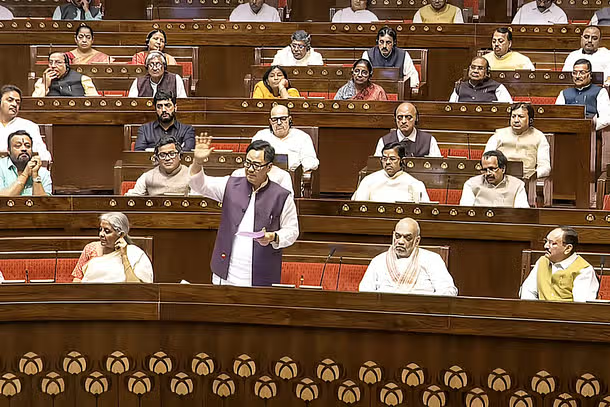"Some Cry Without Any Reason": PM Modi Challenges MK Stalin Regarding Central Funding
"The development of Tamil Nadu's infrastructure is a high priority for the administration," stated PM Narendra Modi.
While inaugurating the Pamban bridge in Tamil Nadu today, Prime Minister Narendra Modi ridiculed the Opposition, likening them to individuals who weep for no apparent reason. In light of Chief Minister MK Stalin's grievances concerning delimitation and the matter of the third language, PM Modi emphasized that the funding for the state's rail initiatives has increased almost sevenfold.
"The development of Tamil Nadu's infrastructure is a high priority for the administration... Prior to 2014, Tamil Nadu only received Rs 900 crore annually for rail initiatives, and everyone knows who was leading the INDI Alliance back then. Currently, the state's rail budget exceeds Rs 6000 crore," he remarked amidst claims of insufficient funding allocations.
He also mentioned that the government is upgrading 77 railway stations, including the one located in Rameswaram.
Highlighting the Centre's contributions in another sector, he commented, "In the last decade, significant advancements have been achieved on rural roads and highways under the Pradhan Mantri Gram Sadak Yojana."
"Since 2014, with the support of the central government, approximately 4,000 km of roads have been constructed in Tamil Nadu," he noted further.
Chief Minister Stalin has continuously accused the Centre of trying to undermine the southern states politically through delimitation and culturally through the three-language formula. He argued that the Centre indicated that it would withhold funds from the state if it did not adhere to the National Education Policy.
Nonetheless, these were not the points PM Modi addressed. Instead, he criticized Tamil Nadu's leaders for signing documents in English rather than Tamil and challenged the state to implement medical education in Tamil.
When Prime Minister Modi opened the Pamban bridge, Mr. Stalin did not attend, opting instead to launch a government-operated medical college located in the Nilgiris. In his speech today, he insisted that the central government must ensure the current number of MPs in parliament remains unchanged.
"I would like to request PM Modi to address the legitimate concerns of Tamil Nadu during this meeting. The Prime Minister should assure us from Tamil Nadu’s soil that the number and percentage of MPs in states that have managed their population will be maintained," he stated, calling for a constitutional change regarding this issue.
In the previous two general elections, the BJP has been unsuccessful in gaining any seats in Tamil Nadu. Now that it has lost its majority in parliament and faces challenges with coalition politics at the center, the party is seeking new opportunities for growth in other states. With many northern states already filled to capacity, the party is now looking towards the southern region.





